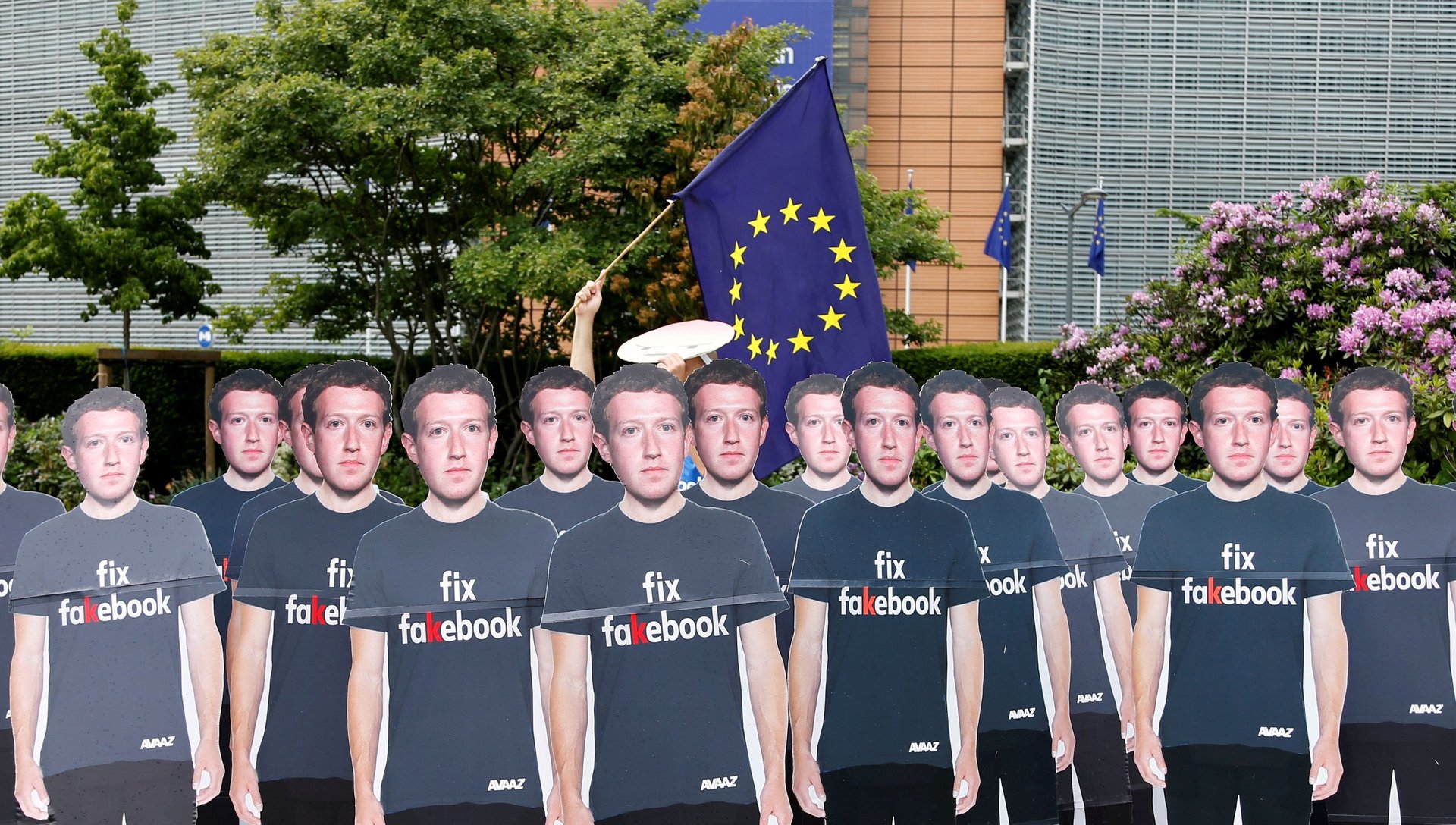A new poll asks: How ready are you to forgive Uber, Wells Fargo, and Facebook?
Once, extracting an apology from a corporation was near impossible. Not anymore. Facebook, Uber, and Wells Fargo—three companies tainted by scandal—are very publicly hanging their heads in shame, eager to use apologies to win back lost customers, reassure policy makers, and repair their tattered reputations.


Once, extracting an apology from a corporation was near impossible. Not anymore. Facebook, Uber, and Wells Fargo—three companies tainted by scandal—are very publicly hanging their heads in shame, eager to use apologies to win back lost customers, reassure policy makers, and repair their tattered reputations.
But not all corporate apologies are viewed the same. In a recent survey of how US consumers regarded penitent ad campaigns on television, Facebook’s apology was accepted by the highest percentage of viewers who saw the ads, followed by Uber, then Wells Fargo. None of the corporate apologies were accepted by more than 35% of viewers, which means all three companies have some work to do.
The survey of 1,028 Americans was conducted online June 20-21 by Alpha, a maker of product-management software. Respondents were asked if they’d seen the ads, if they forgave the companies, and if they knew why the company was apologizing. They were also asked open-ended questions about whether they had taken any action in response to the company’s practices or apologies.
While the respondents were unsparing in their scorn for all three, the comments about Wells Fargo, whose employees opened millions of fake customer accounts, were particularly intense:
I have never used their services and if anyone ask me about them, I will tell them to don’t trust them because of their constant lies to their customers and the public.
i will never ever do business with wells fargo. this was not a mistake, these were several criminal doings over the last years
Wells Fargo was also the company viewed most negatively in the survey: 16% said they had an extremely negative view of the bank, vs. 10% for Facebook and 9% for Uber.
Facebook and Uber may be given more leeway by customers because they’re newer companies in young sectors, where the rules of corporate behavior are still being determined. It’s also possible that less is at stake: It’s easy enough to log off of Facebook or find an Uber competitor. They provide services which aren’t essential, and didn’t even exist 20 years ago.
Banking is different, though. It’s a mature industry with clearly established rules, and one in which customer trust is paramount. Few transactions require as much implicit faith as handing a company your life’s savings for safe keeping. The cost of screwing up that relationship is deservedly high.